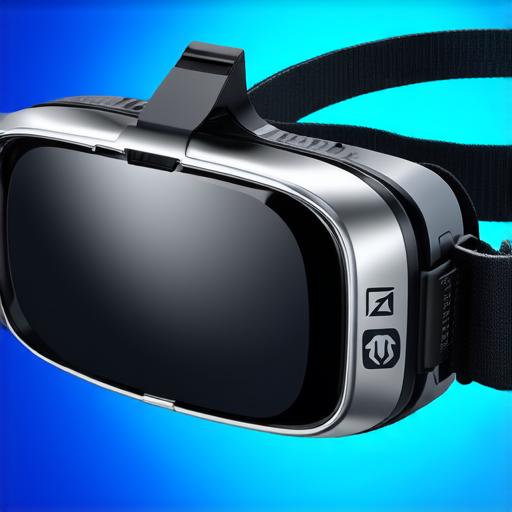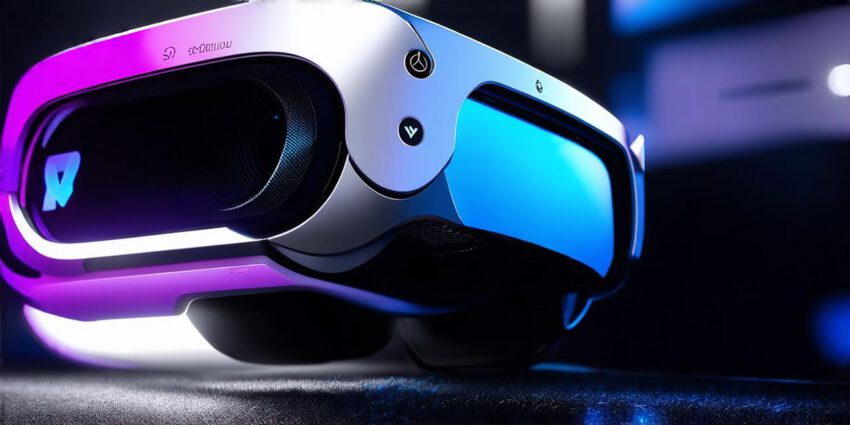Virtual reality development involves creating interactive 3D environments that users can explore using VR headsets or other devices such as smartphones and tablets. This can include everything from gaming experiences to training simulations, educational tools, and even virtual therapy programs.
Benefits of Learning Virtual Reality Development
There are several benefits to learning virtual reality development:
- High Demand for Skilled Developers

As VR technology continues to advance, there is a growing need for skilled developers who can create immersive and engaging experiences. This presents an excellent opportunity for individuals looking to enter the tech industry or switch careers.2. Creativity and Innovation
Virtual reality development allows you to be creative and innovative in ways that traditional programming cannot. With VR, you have the ability to bring your wildest ideas to life and create experiences that are truly unique and memorable.
3. Learning Opportunities
Learning virtual reality development provides an opportunity to learn new skills and technologies. This can include everything from programming languages and 3D modeling software to VR hardware and user experience design.
4. Personal Growth
Virtual reality development requires a combination of technical, artistic, and creative skills. As you work on your projects, you will have the opportunity to grow as a person and develop new strengths and talents.
Course Details & Benefits
There are several courses available for individuals looking to learn virtual reality development. Here are some of the most popular options:
- Unity Virtual Reality Development Course
Unity is one of the most popular game engines used for virtual reality development. This course provides an in-depth introduction to Unity and covers everything from creating your first VR scene to publishing your game on various platforms. The course includes hands-on exercises and projects that allow you to apply what you have learned and develop your skills.2. Virtual Reality with Unreal Engine
Unreal Engine is another powerful game engine that is widely used in the industry. This course provides a comprehensive overview of Unreal Engine and covers topics such as 3D modeling, animation, and scripting. The course includes practical exercises and projects that allow you to create your own VR experiences and apply what you have learned.
3. Virtual Reality Development Bootcamp
This bootcamp is designed for individuals with little to no experience in virtual reality development. It covers all the basics from creating your first VR scene to publishing your game on various platforms. The course includes interactive lessons, quizzes, and projects that allow you to learn at your own pace and develop your skills.
4. Virtual Reality Design & Development Course
This course provides an overview of virtual reality design and development, covering topics such as user experience design, 3D modeling, and scripting. The course includes real-world examples and case studies that allow you to see how VR is being used in different industries and applications.
FAQs
1. What skills do I need to learn virtual reality development?
To learn virtual reality development, you will need to have a strong understanding of programming languages such as C++, Unity, and Unreal Engine. You will also need to be familiar with 3D modeling software such as Blender, Maya, and 3DS Max. Additionally, you will need experience working with VR hardware such as Oculus Rift and HTC Vive.
2. How long does it take to learn virtual reality development?
The length of time it takes to learn virtual reality development depends on your prior experience and the course you choose. Some courses can be completed in a few weeks, while others may take several months. It is important to set realistic goals and expectations for yourself and commit to regular practice and learning.
3. Is there any age limit to learn virtual reality development?
There is no specific age limit to learn virtual reality development. However, it is recommended that individuals have a basic understanding of programming concepts and be comfortable working with technology before diving into VR development. It is also important to note that some courses may require certain software or hardware that may not be available to all individuals.
4. What are the job opportunities in virtual reality development?
Virtual reality development presents numerous job opportunities in various industries such as gaming, entertainment, education, healthcare, and more. Some examples of jobs in VR development include game designer, 3D artist, programmer, UX

